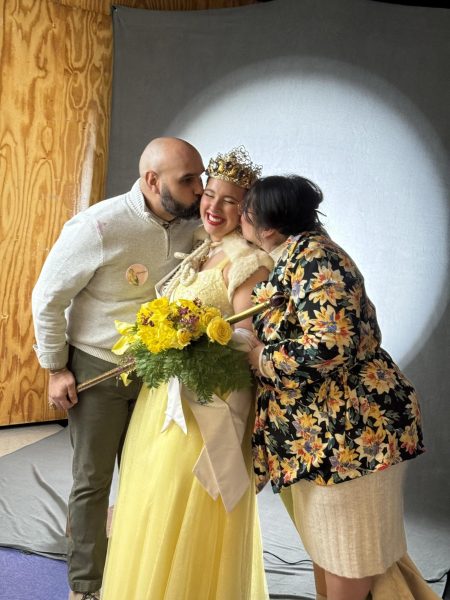Administrator, security experience racism
As African-American men, Tim Harris and Daralin Lawson say they have had to deal with racism in their life.
Harris grew up in Washington State and says there were instances of conflict based on his race, some of them more subtle.
“My experiences in school have been what I would call ‘passive racism’ and as an African American, you learn how to identify what that looks like in its body language and certain communication that make you feel not welcomed. You can tell it is race based,” Harris said.
While there were those unspoken moments, Harris said there were just as many moments of direct racism.
“[During] my ninth grade year in high school [at Bellarmine] I got the nerve and guts to ask a girl to freshman Tolo and her response was ‘no,’ so I asked ‘why?’She [told me her] dad would not let [her] go to the dance with someone like [me]. I asked what that meant and she said it was because [I am] black,” Harris said.
However, Harris says he experienced more racism in high school than college.
“When I was in college, it was a more welcoming environment and it did help that I was an athlete. If I had not been an athlete my college life could have been a little different and that is not a good thing but that is life,” Harris said.
After college, Harris became the football coach at a school in Texas and even as a coach he says he experienced racism from students at the school.
“After practice I went over there and put the rest of the pads up and locked the container up and on the shipping container was the N-word just straight up. It was spray painted pretty big and whether it was intended for me or not, everyone knew I went there Monday through Friday to lock up our pads so they knew I would see it,” Harris said.
Harris grew up playing football, so much that his idol in life is a prominent part of the sport but also a strong presence after his retirement.
“I could give you my parents, my family, my upbringing, getting married with my wife and having kids made me the man I am today but if I had to pinpoint my idol it was Emmitt Smith,” Harris said. “He played the game of football with such grace, charisma and power and when he retired, he continued to conduct his life and I consider him a positive man in society and I respect that about him.”
While Harris did have his struggles so did security officer Daralin Lawson but in a different way; Lawson says he experienced it at war.
“I experienced it in Iraq when I was at war and a little bit in Germany [when I was stationed there]. They did not like colored people that much,” Lawson said.
War was not was not the only time Lawson would be a victim of racism. He also experienced it as a prison guard.
“When I was an officer in a prison I did deportation and the people we were deporting did not like blacks and I knew going in; it got to a point where I had to fight,” Lawson said.
Lawson tried to avoid being physical at all costs but was not always able to avoid it.
“Myself and another officer were working and he stepped out to smoke a cigarette. I was eating some donuts and he was outside for a long period of time, longer than a cigarette should last. I went to check on him and he was getting jumped and I yelled ‘aye stop’ and when they saw me they turned their attention,” Lawson said. “I braced myself and told myself that I was not going to get on the ground. I did not kill anybody but I did paralyze two while defending myself and in couple minutes the rest were arrested. These people when they would be in calls would say they do not like the black guard.”
While growing up Lawson had an idol that he held close to his heart:his mom.
“My mother, of course. She had me at the age of 20, she was a full-time athlete and student. When I was born she continued college and had a full-time job, she showed me love and filled in the need for a mother and a father. I never had a want for things because she always provided,” Lawson said.



